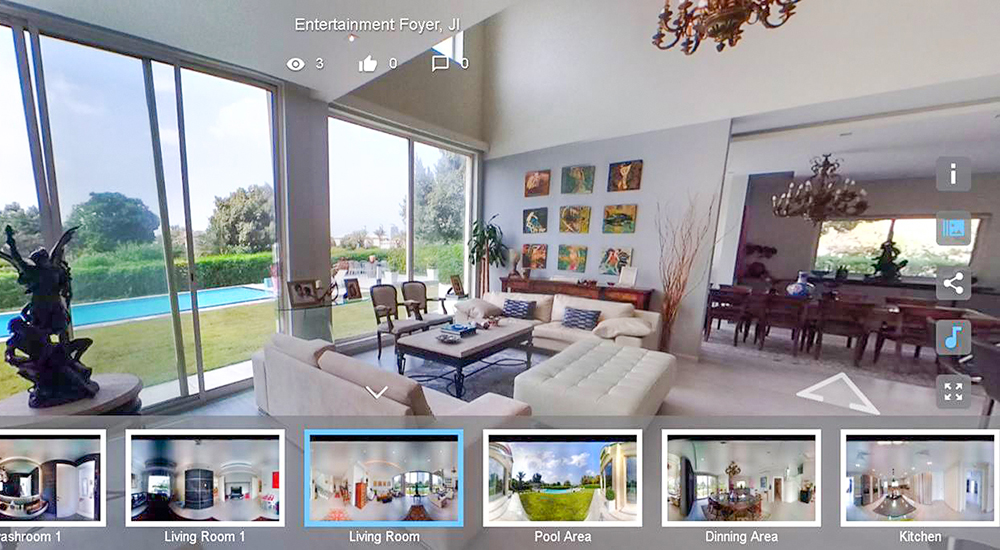
What is the Difference Between a Leave and License and Rent Agreement?

If you have actually been in the process of leasing a home, either as a tenant or a property owner, you've likely come across terms like "Leave and License Agreement" and "Rent Agreement." While they may seem similar, it's necessary to understand that they stand out ideas with notable differences. To comprehend the key difference and application in between these 2 things, let's very first clearly understand the distinction between both of these

What is a Lease Agreement?
In India, a rent arrangement is a legal document that explains the terms and situations of renting a residential or commercial property between a landlord (lessor) and a tenant (lessee). It is likewise referred to as a Rental Contract or a Rental Agreement.
The Rent Agreement generally includes details such as the property owner's and renter's names and addresses, the lease term, the lease amount and payment schedule, the security deposit, upkeep and repair responsibilities, rules and guidelines for residential or commercial property usage, and other important provisions. In India, the Rent Agreement must be composed and signed by both parties. It is advised that the Rent Agreement be signed up with the local authority in order for it to be legally binding and enforceable. The Rent Agreement must be registered by paying a small stamp responsibility and registration cost if it is for more than 11 months in period. A well-drafted Rent Agreement can help avoid arguments and misconceptions between the proprietor and tenant by outlining both sides' rights and responsibilities.
What Exactly is a Leave And License Agreement?
A "Leave and License" agreement allows the Licensee approval to inhabit the Licensor's residential or commercial property. As an outcome, rather than an occupancy, permission to occupy is given on a leave and licence basis. A contract like this makes eviction much easier and gives the property owner more power overall.
The distinction between a Lease and a leave and licence plan is that the previous establishes an interest in the residential or commercial property, whereas the latter does not. A Lease, unlike a Leave and License arrangement, can also be transferred.
A "License" is a best granted by someone to another or a group of individuals under Indian law. These rights typically use to acts that seem prohibited on or in relation to immovable residential or commercial property. A licence grants non-transferable individual rights.
The licensor is the individual who provides the licence, whereas the licensee is the one who purchases the licence and exercises its rights. Leases and rental agreements are not the very same as licences since each is distinct in its own method.
According to Section 52 of the Indian Easements Act [1], "where one person grants to another, or to a specific variety of other persons, a right to do, or continue to do, something in or upon the grantor's unmovable residential or commercial property that would be illegal in the absence of such a right, and such a right does not total up to an easement or an interest in the residential or commercial property, the right is called a licence."
The Maximum Period of Leave and License Agreement:
The optimal duration for a leave and License contract in India is generally 11 months. This 11-month period is standard for many arrangements, whether they are for property or commercial functions. However, it is not vital that leave and license contract needs to be renewed for only 11 months; the period can be decided by the lessor and the lessee.
Difference Between Rent Agreement and Leave and Licence Agreement
On the surface area, lease and lisence arrangement and lease agreement appear to be the same thing, yet there is a substantial distinction between them.
Interest and Transferability:
Leave and License Agreement: A leave and license arrangement grants authorization to utilize the residential or commercial property but doesn't create an interest in the residential or commercial property itself. It's a permission-based contract that does not provide ownership or proprietary rights to the licensee. Additionally, leave and license arrangements normally can't be moved to another party.
Rent Agreement Similarly, a rent arrangement doesn't give ownership however permits short-term usage of the residential or commercial property. Unlike leave and license, some leases might produce a leasehold interest in the residential or commercial property, particularly longer-term industrial leases. Leases can frequently be moved, subject to the terms of the contract and regional laws.
Term:
Leave and License Agreement: Can be signed for differing durations, consisting of shorter periods like 11 months.
Rent Agreement: Can be signed for various durations, not strictly restricted to monthly terms.
Assets/Property Type:
Leave and License Agreement: Typically provided for immovable residential or commercial properties.
Rent Agreement: Commonly done for movable residential or commercial properties, lands, and unmovable residential or commercial properties also.
Maintenance Responsibility:
Leave and License Agreement: Maintenance responsibilities can vary based on the regards to the agreement.
Rent Agreement: Maintenance duties usually fall on the renter or occupant, who is accountable for the upkeep of the residential or commercial property. In leasing, particularly in business leasing, the lessee may bear the upkeep burden, shifting the responsibility to the market or business that has purchased the lease.
Flexibility of Terms:
Lease & License Agreement: Terms and conditions are predetermined and equally accepted in the leasing contract.
Rent Agreement: Renting arrangements can change terms and conditions at any time, at the property manager's discretion.
Why is a Leave and License Agreement Better for Homeowners than a Routine Rent Agreement?
Squatters are any residential or commercial property owner's biggest worry. It's rather typical to hear accounts of renters unlawfully occupying large homes because owning property runs out reach for a large part of the population. If the squatter declines to leave your residential or commercial property, it normally leads to a prolonged legal battle, or an out-of-court settlement that might not remain in your finest interests. But do not stress; there's a procedure in place to rescind the Leave and license Agreement.
You have two options: sign a regular rent agreement or produce a leave-and-license agreement. In either circumstance, as a residential or commercial property owner, you would wish to lease your residential or commercial property with total self-confidence that ownership will stay "uninhabited and unencumbered" at the end of the agreement term.
In a Leave And License Agreement, the owner accredits the residential or commercial property to the renter, and the renter abandons the premises at the conclusion of the license duration. The occupant has no right to claim ownership of the residential or commercial property. The Rent Control Act does not use to this plan.
But in Rental Agreement, Tenants may declare ownership of residential or commercial property after remaining for at least 10 years and suing under the Rent Control Act. You have a few choices for kicking out the tenant and raising the lease.
Choose an 11-month Leave and License contract to make your arrangement a lot more safe and secure. After 11 months, extend the agreement for another 11 months. Limit your agreement to 11 months. A tenant needs to not understay or overstay his or her lease due to the fact that the lessor will need to pay for remodelling, painting, cleansing, repairs, and broker costs once again. The advised occupancy period is 5 years, though with restored contracts, renters can stay as long as both celebrations agree.
Conclusion
In conclusion, understanding the difference between Leave and License Agreements and Rent Agreements is crucial for a smooth rental experience in India. Each kind of agreement has its own distinct functions and ramifications, with Leave and License Agreements using more versatility for property managers and Rent Agreements supplying extra occupant securities under the Rent Control Act.
If these appear excessive to manage or you look for professional residential or commercial property management and rental services, Agarwal Estates sticks out as an exceptional choice. Their extensive solutions, consisting of ensured rent, energy payment handling, residential or commercial property evaluations, and more, provide unequaled ease and convenience for residential or commercial property holders. Tenants also gain from having a dedicated business cater to their needs, ensuring a seamless and pleasurable tenancy experience. With Agarwal Estates as your trustworthy partner, navigating rental arrangements becomes stress-free, as they prioritise protecting your interests and ensuring an unified rental journey.







